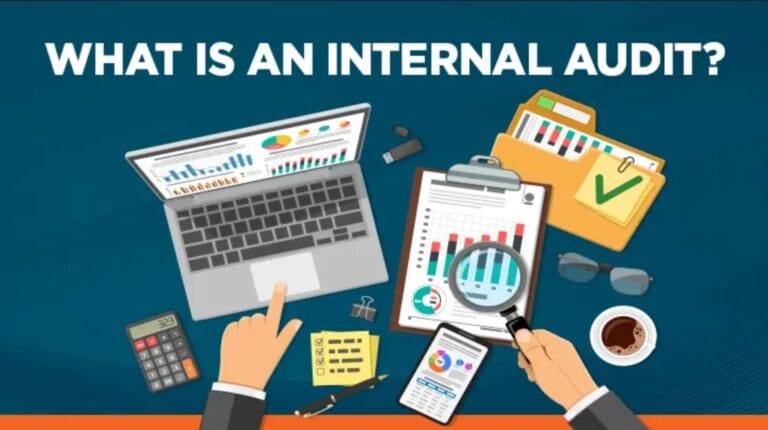Bank statutory audit is a mandatory examination of a bank’s financial statements and related operations conducted by external auditors to ensure compliance with statutory requirements, regulations, and accounting standards. It is mandated by regulatory authorities to provide assurance on the accuracy, completeness, and fairness of the bank’s financial reporting. Here’s a detailed overview of bank statutory audit:
Objectives of Bank Statutory Audit
- Financial Statement Verification: Ensure that the bank’s financial statements present a true and fair view of its financial position and performance.
- Regulatory Compliance: Verify compliance with regulatory requirements, banking laws, and guidelines issued by authorities such as the Reserve Bank of India (RBI) or other central banks.
- Internal Control Assessment: Evaluate the effectiveness of internal controls over financial reporting and operational processes.
- Risk Management: Assess the bank’s risk management practices and the adequacy of provisions for potential losses.
- Fraud Detection: Identify and report any instances of fraud, misappropriation, or significant irregularities in the bank’s operations.
Scope of Bank Statutory Audit
- Financial Reporting: Examination of the bank’s balance sheet, income statement, cash flow statement, and notes to accounts.
- Loans and Advances: Review of credit appraisals, loan disbursements, classification of advances, and provisioning for non-performing assets (NPAs).
- Deposits and Borrowings: Verification of deposit accounts, interest calculations, and borrowings.
- Investments: Assessment of the valuation, classification, and compliance of investment portfolios with regulatory requirements.
- Foreign Exchange: Examination of foreign exchange transactions, compliance with regulatory norms, and risk management practices.
- Compliance: Ensuring adherence to statutory requirements, RBI guidelines, and other regulatory directives.
- Internal Controls: Evaluation of the internal control systems in place for financial reporting, transaction processing, and safeguarding of assets.
Process of Bank Statutory Audit
1. Planning and Risk Assessment
- Define audit objectives, scope, and methodology.
- Perform a risk assessment to identify key risk areas and prioritize audit activities accordingly.
- Develop an audit plan outlining the audit schedule, resource allocation, and timelines.
2. Fieldwork and Testing
- Conduct substantive testing and analytical procedures to verify the accuracy and completeness of financial records.
- Perform tests of controls to assess the effectiveness of internal controls over financial reporting and operations.
- Examine supporting documentation, vouchers, and records to validate transactions and balances.
3. Verification and Confirmation
- Confirm balances of significant accounts such as loans, deposits, investments, and inter-bank transactions with third parties.
- Verify physical assets and inventory where applicable.
4. Audit Reporting
- Prepare audit reports detailing findings, observations, and recommendations.
- Communicate significant issues, discrepancies, and non-compliance to the bank’s management and board of directors.
- Issue the audit report along with the auditor’s opinion on the financial statements.
5. Follow-Up and Monitoring
- Monitor the implementation of audit recommendations and corrective actions by the bank.
- Conduct follow-up audits if necessary to ensure issues have been resolved.
Importance of Bank Statutory Audit
- Transparency and Accountability: Enhances the transparency and accountability of the bank’s financial reporting, providing assurance to stakeholders, including regulators, investors, and customers.
- Regulatory Compliance: Ensures compliance with statutory requirements and regulatory guidelines, thereby minimizing the risk of penalties and legal issues.
- Risk Management: Helps in identifying and mitigating risks associated with financial operations, asset quality, and compliance.
- Internal Control Strengthening: Provides insights into the effectiveness of internal controls, leading to improvements in the control environment.
- Fraud Prevention: Detects and prevents potential fraud or misappropriation, protecting the bank’s assets and reputation.
Bank statutory audit is a crucial process that ensures the accuracy and integrity of a bank’s financial statements and operations. By providing an independent assessment of financial reporting, regulatory compliance, and internal controls, statutory audits enhance the confidence of stakeholders and contribute to the stability and soundness of the banking sector. Continuous improvement in audit practices, adherence to professional standards, and proactive engagement with regulatory requirements are essential for achieving the objectives of bank statutory audits and sustaining trust in the banking system.
At Ujjwal Gupta & Co
We, at Ujjwal Gupta & Co, are dedicated to delivering personalized, high-quality solutions tailored to meet your financial and business needs. With our team of professionals and a client-first approach, we ensure that every challenge is met with expert guidance and strategic insight.
We are dedicated to ensuring your business’s success by providing best service practice available in the industry and that too at a cost effective pricing. Our team of experts is excited to work with you and provide the support you need to thrive in the Indian business landscape.
Our only motive is to create Value for Our Clients and accordingly, have a Client Value System at our Office.
So, let us help you navigate the complexities of finance and compliance, empowering you to focus on what matters most — growing your business. Get in touch today, and take the first step towards financial peace of mind.
A Statutory Audit is a mandatory audit of a bank’s financial records, carried out annually by an external auditor. The purpose is to ensure that the financial statements of the bank give a true and fair view of its financial position and comply with the regulatory requirements set by the Reserve Bank of India (RBI), Companies Act, and other applicable laws.
Statutory auditors are typically appointed by the bank’s Audit Committee or the Board of Directors in compliance with RBI guidelines. The auditors must be Chartered Accountants (CAs) or audit firms that are empaneled with the RBI. Public sector banks may also require the approval of the RBI for auditor appointments.
Statutory auditors in a bank are responsible for:
- Verifying the financial statements: This includes the balance sheet, profit and loss account, and cash flow statements.
- Assessing compliance with applicable laws, such as RBI guidelines, the Banking Regulation Act, and other regulatory requirements.
- Checking the accuracy of NPA (Non-Performing Asset) classification and the adequacy of provisioning.
- Ensuring proper disclosure of key financial information.
- Assessing internal controls and reporting weaknesses, if any, in the bank’s operational systems.
- Providing an audit report along with recommendations to the management.
The scope of a statutory audit for banks includes:
- Verification of financial statements to ensure accuracy and completeness.
- Loan portfolio audit: Review of loan disbursements, classification, and recovery, focusing on NPAs.
- Verification of interest income and provisions.
- Cash and ATM management: Audit of cash holdings, ATM operations, and cash reconciliation.
- Foreign exchange and treasury operations.
- Compliance with RBI guidelines, such as capital adequacy, income recognition, and asset classification.
- Review of internal controls and adherence to accounting standards.
The RBI plays a significant role in bank statutory audits by:
- Issuing guidelines on the scope, areas of focus, and audit methodology.
- Empaneling qualified auditors who are authorized to conduct the audits of banks.
- Monitoring compliance: The RBI reviews statutory audit reports during its inspections of banks to ensure compliance with its regulations.
- In some cases, the RBI also approves the appointment of statutory auditors for public sector banks.
Non-Performing Assets (NPAs) are loans or advances where the borrower has defaulted on payment of interest or principal for 90 days or more. NPAs are a critical area in a statutory audit because they affect the bank’s profitability and financial health. Auditors assess:
- The correct classification of NPAs.
- The adequacy of provisions made for bad and doubtful debts.
- Whether the bank has followed RBI norms for asset classification and provisioning.
Some of the main challenges include:
- High volume of transactions: Banks deal with thousands of transactions daily, which can be difficult to audit comprehensively.
- Complex loan portfolios: Reviewing and assessing large loan portfolios, including checking for proper classification of NPAs, can be time-consuming.
- Compliance with dynamic regulations: Banks must adhere to frequently updated RBI guidelines, making it challenging for auditors to stay current with changes.
- Fraud detection: Auditors must be vigilant to detect potential fraud, especially in areas like loan sanctions and advances.
- Technological systems: Banks use complex systems like Core Banking Solutions (CBS), which requires auditors to have adequate technical expertise.
The statutory audit process generally follows these steps:
- Planning: Understanding the bank’s operations, identifying key audit areas, and preparing an audit plan.
- Fieldwork: Performing substantive testing and analytical procedures on the bank’s financial transactions, verifying documents, and interviewing staff.
- Loan review: Assessing the loan portfolio, particularly focusing on NPAs, provisioning, and interest recognition.
- Review of internal controls: Evaluating the effectiveness of the bank’s internal controls and risk management practices.
- Reporting: Preparing the audit report, highlighting findings, and making recommendations for corrective action.
If a bank is found non-compliant during the statutory audit, it can face several consequences:
- Regulatory penalties: The RBI may impose fines or other penalties for non-compliance with its guidelines.
- Reputational damage: Adverse audit findings must be disclosed in the bank’s financial statements, which can harm its reputation.
- Corrective action: The RBI may require the bank to implement corrective measures, such as making additional provisions for NPAs, improving internal controls, or revising its loan policies.
- In extreme cases, the RBI may restrict certain operations of the bank, such as branch expansion or dividend declarations.
Bank statutory audits are typically conducted at the end of the financial year, with the audit process spanning several weeks, depending on the size and complexity of the bank. The auditors must submit their final audit report to the bank’s management and the RBI within the prescribed timeline, usually before the bank’s financial statements are presented to shareholders and regulatory bodies.
Why Choose UGC?

Client Centric Approach
Client is the key driver of our service offerings. Our approach to service offerings is based on a client centric and customized approach. Our specialized teams are a mix of technical and industry experience in order to serve clientele for their specific needs.

Team Work
We have built high performing teams supported by strong work ethic. Our team is a mix of experts, professionals and support staff from technical and varied academic, social and ethnic backgrounds. We believe diversification plays a vital role in motivating the team.

Quick Turnaround
We always endeavour for a quick turnaround time to serve our clientele. We are supported by an experienced and client focussed support teams to offer timely services to our clientele. In case of any business exigencies and time sensitive service requirements, you can always count on us.

Open Communications
We believe that open communication is the core principle in order to demonstrate trust, build long lasting and valuable relationships with clientele. We are committed to ensuring transparency in communication, service offerings and delivery. We provide professional services to our clients.

Client Value System
We value for the Client time and thus, we offer services that are value for money. Quality professional services are provided to our clients, so that they are able to achieve their desired results. We are a quality trademark in the industry and thus, our clients count on us always.

Quality in Delivering Work
Our service offerings are driven by quality and reviews at every level. We strive to provide a qualitative and value-added delivery to our clientele. At all times, we endeavour to provide exceptional client service by meeting client expectations and driving client satisfaction.





















